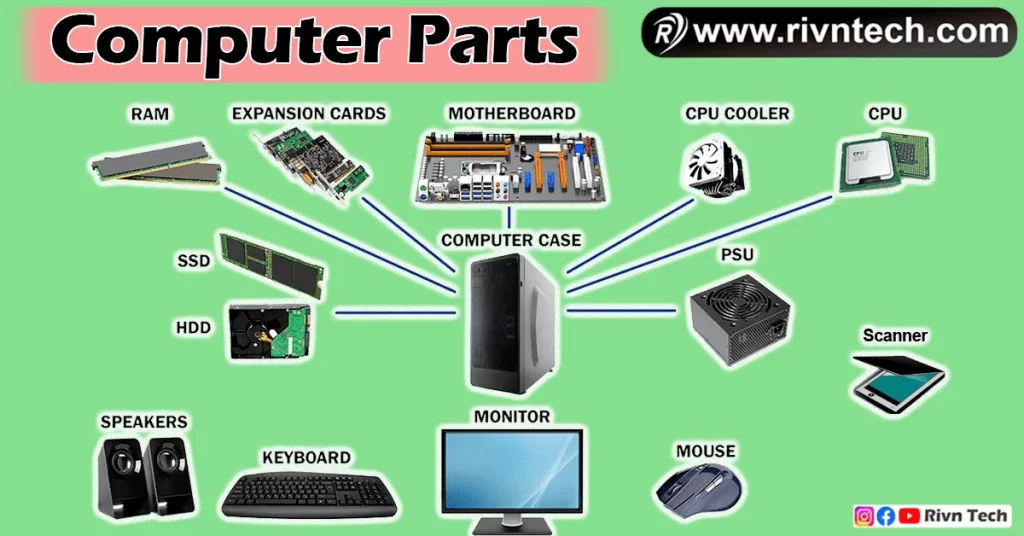Accessing Potential: How to Benefit from Excess Computer Parts
In this technology-driven world, the need for computer components is constantly rising, yet numerous us are bound by budget limitations. Fortunately, excess computer parts offer a practical solution to this problem, providing an opportunity to build or upgrade systems at a fraction of the retail cost. With a bit of knowledge and the right approach, you can navigate the vast marketplace of surplus components to discover incredible deals that meet your needs.
From graphics cards and CPUs to mainboards and power supplies, the selection of surplus computer parts available can be daunting. However, knowing what to search for and how to assess quality can empower you to make smart purchases that enhance your overall experience with technology. This guide is designed to help you realize the benefit of surplus computer parts, offering insights on everything from identifying genuine components to testing the functionality of second-hand items. Whether https://canvas.instructure.com/eportfolios/3614740/entries/13346370 are a seasoned builder or just starting, knowing how to profit from surplus parts can turn your tech aspirations into reality.
A Ultimate Manual to Acquiring Surplus Computer Parts
Purchasing extra computer parts can be a great way to cut money while boosting your system's performance. However, it necessitates careful consideration and understanding to ensure you make the optimal possible choices. Understanding what surplus parts are available and what details to look for can make the difference between a great deal and a costly mistake. Start by acquainting yourself with the types of surplus components on the market, which include motherboards, CPUs, GPUs, and various peripherals.
When searching for surplus parts, it's important to examine the seller's credibility and the product's condition. Look for reputable vendors who focus in surplus electronics, as they are more likely to provide quality components. Check for refund policies and warranties offered, as these can provide confidence in case the parts do not meet your expectations. Additionally, it is beneficial to read reviews or look for recommendations from the community to identify trustworthy sources for your purchases.
Ultimately, once you have identified a potential purchase, learn how to assess the quality of the part itself. This includes looking for physical damage, testing functionality if possible, and ensuring compatibility with your existing system. By following these guidelines, you can navigate the surplus market confidently, ensuring that you make informed acquisitions that bring genuine value to your technology setup.
How to Identify Top-Notch Excess Components
As you are searching for top-notch surplus computer components, one should crucial to begin with a trustworthy source. Well-known suppliers, established online marketplaces, and local computer shops often provide superior quality controls compared to unknown sellers. Always review surplus monitors , reviews, and return policies, as these can give insights into the seller's reliability. Prefer suppliers who specialize in extra electronics, as they tend to have a selected assortment of components that meet particular standards.
Next, analyze the condition of the components carefully. Look for physical signs of wear, corrosion, or damage, which can indicate that the parts are poorly cared for or stored. For electronic parts like motherboards or graphics cards, ensure that the solder joints are intact and that there are no bulging capacitors. If possible, ask for detailed photos from multiple angles to evaluate the items carefully before making a purchase.
Finally, verify the specifications and compatibility of the components. High-quality surplus parts should meet or match the standards necessary for your intended use use. Check model numbers and performance ratings with respect to official manufacturer specifications. Additionally, consider requesting the seller for any testing results or warranties, as reputable sellers will typically stand by the quality of their surplus inventory and provide assurances of functionality.
Are These Surplus PC Parts A Good Investment?
Surplus components can offer great value to consumers and builders alike, especially for those on a tight budget. These components are often sold at a fraction of their original retail price, making it to build or enhance systems without overspending. Additionally, many surplus parts still have a satisfactory lifespan and performance potential, especially when sourced from trustworthy sellers. This creates them an appealing option for gamers, DIY enthusiasts, and businesses looking to maximize their technology investments.

However, not all surplus parts are made equal, and it is essential to practice caution. While there are fantastic bargains to be had, there is also the risk of buying components that are of poor quality or have hidden defects. Understanding how to evaluate the state and authenticity of surplus parts can help lessen these risks. Buyers should seek out trustworthy vendors, examine return policies, and favor components that come with some form of warranty to make sure they are making wise investments.
Ultimately, purchasing surplus computer parts can be a smart financial decision if tackled in the right way. By doing deep research, understanding what to look for, and being able to distinguish between top-notch components and potential failures, buyers can successfully enhance their computing experience without the high price tag. The key is to weigh the potential savings with the awareness of risks associated in purchasing surplus technology.